05 Trade Policy
- 格式:ppt
- 大小:333.50 KB
- 文档页数:73
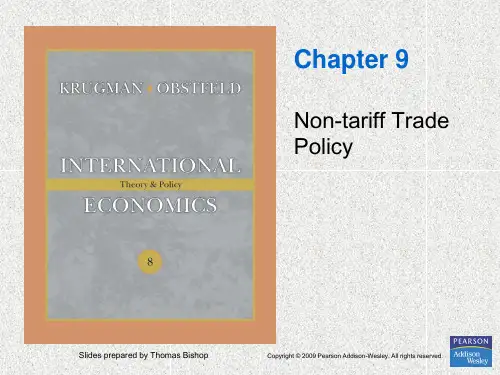
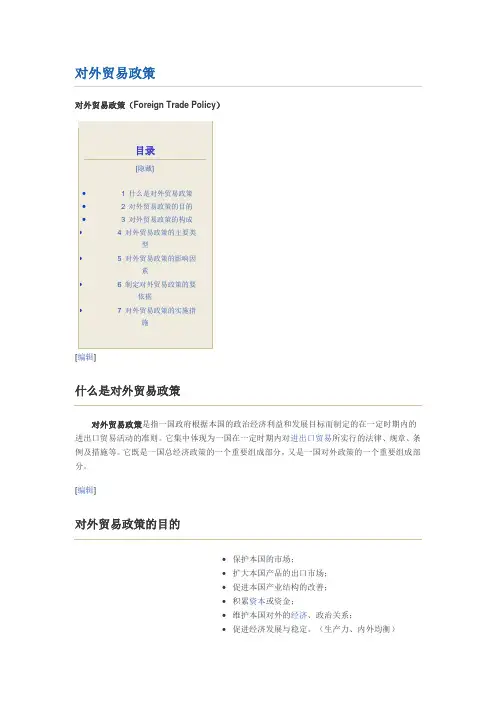
对外贸易政策对外贸易政策(Foreign Trade Policy)[编辑]什么是对外贸易政策对外贸易政策是指一国政府根据本国的政治经济利益和发展目标而制定的在一定时期内的进出口贸易活动的准则。
它集中体现为一国在一定时期内对进出口贸易所实行的法律、规章、条例及措施等。
它既是一国总经济政策的一个重要组成部分,又是一国对外政策的一个重要组成部分。
[编辑]对外贸易政策的目的•保护本国的市场;•扩大本国产品的出口市场;•促进本国产业结构的改善;•积累资本或资金;•维护本国对外的经济、政治关系;•促进经济发展与稳定。
(生产力、内外均衡)对外贸易政策的构成一项完整的贸易政策应包括:政策主体、政策客体、政策目标、政策内容和政策手段。
从对外贸易政策的内部构成看应包括三个层次:1、对外贸易总政策,其中包括进口总政策和出口总政策这是根据本国国民经济的总体情况,本国在世界舞台上所处的经济和政治地位,本国的经济发展战略和本国产品在世界市场上的竞争能力以及本国的资源、产业结构等情况,制定的在一个较长时期内实行的对外贸易基本政策。
2、对外贸易国别(或地区)政策这是根据对外贸易总政策及世界经济政治形势,本国与不同国别(或地区)的经济政治关系,分别制定的适应特定国家(或地区)的对外贸易政策。
3、对外贸易具体政策,又称进出口商品政策这是在对外贸易总政策的基础上,根据不同产业的发展需要,不同商品在国内外的需求和供应情况以及在世界市场上的竞争能力,分别制定的适用于不同产业或不同类别商品的对外贸易政策。
对外贸易政策的制定,一般反映本国统治阶级的利益和意志。
在资本主义国家,占统治地位的资产阶级内部,一般存在着若干不同的利益集团。
在一定时期,某一集团在政治上占上风,则该国的对外贸易政策就反映这个集团的利益和意志,主要为这个集团服务。
因此,在资本主义国家的不同利益集团之间常在此问题上发生争吵。
一个国家对外贸易政策的制定,一般是由该国的立法机构进行。
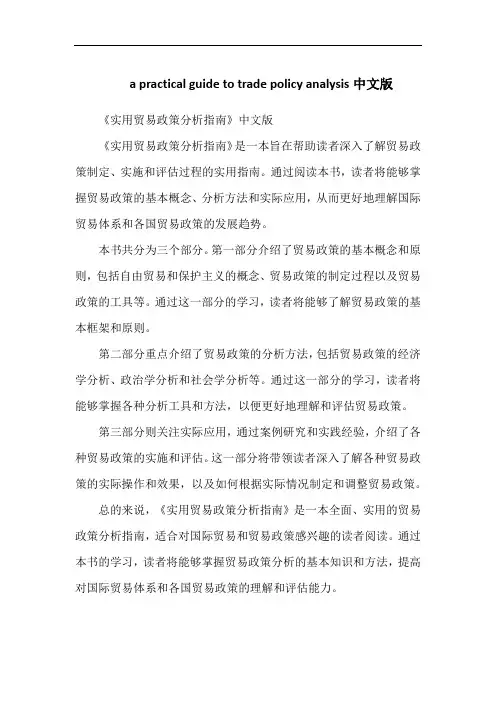
a practical guide to trade policy analysis中文版
《实用贸易政策分析指南》中文版
《实用贸易政策分析指南》是一本旨在帮助读者深入了解贸易政策制定、实施和评估过程的实用指南。
通过阅读本书,读者将能够掌握贸易政策的基本概念、分析方法和实际应用,从而更好地理解国际贸易体系和各国贸易政策的发展趋势。
本书共分为三个部分。
第一部分介绍了贸易政策的基本概念和原则,包括自由贸易和保护主义的概念、贸易政策的制定过程以及贸易政策的工具等。
通过这一部分的学习,读者将能够了解贸易政策的基本框架和原则。
第二部分重点介绍了贸易政策的分析方法,包括贸易政策的经济学分析、政治学分析和社会学分析等。
通过这一部分的学习,读者将能够掌握各种分析工具和方法,以便更好地理解和评估贸易政策。
第三部分则关注实际应用,通过案例研究和实践经验,介绍了各种贸易政策的实施和评估。
这一部分将带领读者深入了解各种贸易政策的实际操作和效果,以及如何根据实际情况制定和调整贸易政策。
总的来说,《实用贸易政策分析指南》是一本全面、实用的贸易政策分析指南,适合对国际贸易和贸易政策感兴趣的读者阅读。
通过本书的学习,读者将能够掌握贸易政策分析的基本知识和方法,提高对国际贸易体系和各国贸易政策的理解和评估能力。
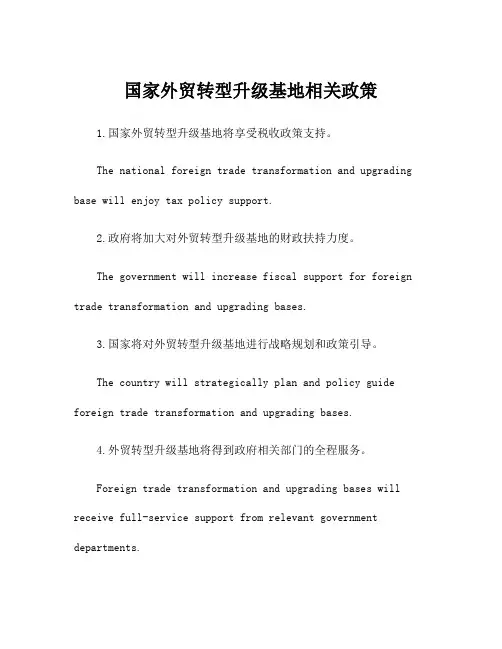
国家外贸转型升级基地相关政策1.国家外贸转型升级基地将享受税收政策支持。
The national foreign trade transformation and upgrading base will enjoy tax policy support.2.政府将加大对外贸转型升级基地的财政扶持力度。
The government will increase fiscal support for foreign trade transformation and upgrading bases.3.国家将对外贸转型升级基地进行战略规划和政策引导。
The country will strategically plan and policy guide foreign trade transformation and upgrading bases.4.外贸转型升级基地将得到政府相关部门的全程服务。
Foreign trade transformation and upgrading bases will receive full-service support from relevant government departments.5.国家将对外贸转型升级基地提供优惠的融资政策。
The country will provide preferential financing policies for foreign trade transformation and upgrading bases.6.政府将对外贸转型升级基地的专业化人才进行培训和支持。
The government will provide training and support for the professional talents of foreign trade transformation and upgrading bases.7.国家将鼓励外贸转型升级基地采用先进技术和设备。
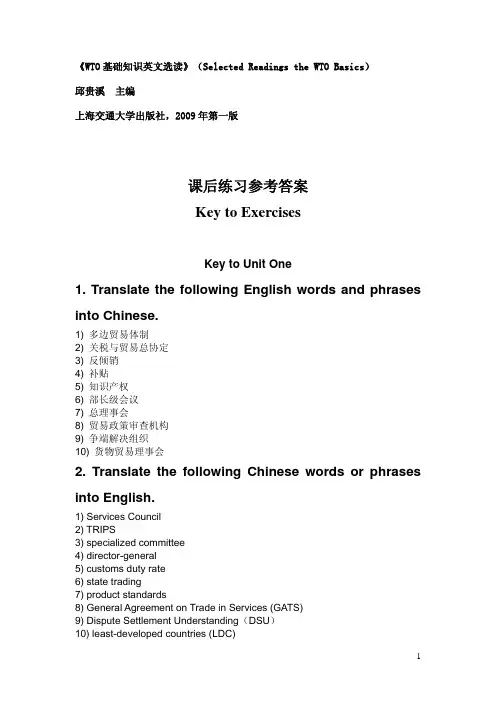
《WTO基础知识英文选读》(Selected Readings the WTO Basics)邱贵溪 主编上海交通大学出版社,2009年第一版课后练习参考答案Key to ExercisesKey to Unit One1. Translate the following English words and phrases into Chinese.1) 多边贸易体制2) 关税与贸易总协定3) 反倾销4) 补贴5) 知识产权6) 部长级会议7) 总理事会8)贸易政策审查机构9) 争端解决组织10) 货物贸易理事会2. Translate the following Chinese words or phrases into English.1) Services Council2) TRIPS3) specialized committee4) director-general5) customs duty rate6) state trading7) product standards8) General Agreement on Trade in Services (GATS)9) Dispute Settlement Understanding(DSU)10) least-developed countries (LDC)3. Answer the following questions according to the text.1) The past 50 years have seen an exceptional growth in world trade. Merchandise exports grew on average by 6% annually. Total trade in 2000 was 22-times the level of 1950. GATT and the WTO have helped to create a strong and prosperous trading system contributing to unprecedented growth.2) The system was developed through a series of trade negotiations, or rounds, held under GATT. The first rounds dealt mainly with tariff reductions but later negotiations included other areas such as anti-dumping and non-tariff measures.3) The work programme, the Doha Development Agenda (DDA), adds negotiations and other work on non-agricultural tariffs, trade and environment, WTO rules such as anti-dumping and subsidies, investment, competition policy, trade facilitation, transparency in government procurement, intellectual property, and a range of issues raised by developing countries as difficulties they face in implementing the present WTO agreements.4)The WTO’s overriding objective is to help trade flow smoothly, freely, fairly and predictablyIt does this by:•Administering trade agreements•Acting as a forum for trade negotiations•Settling trade disputes•Reviewing national trade policies•Assisting developing countries in trade policy issues, through technical assistance and training programmes•Cooperating with other international organizations5) 1. Highest authority:the Ministerial ConferenceThe Ministerial Conference is the governing body of the WTO,responsible for setting the strategic direction of the organization and making all final decisions on agreements under its wings.2. Second level:General Council in three guisesDay-to-day work in between the ministerial conferences is handled by three bodies:General CouncilTrade Policy Review BodyDispute Settlement Body3. Third level: councils for each broad area of trade, and moreThree more councils, each handling a different broad area of trade, report to the General Council;The Council for Trade in Goods (Goods Council)The Council for Trade in Services (Services Council)The Council for Trade-Related Aspects of Intellectual Property (TRIPS Council)6) The Secretariat’s main duties are to supply technical support for the various councils and committees and the ministerial conferences, to provide technical assistance for developing countries, to analyze world trade, and to explain WTO affairs to the public and media. The Secretariat also provides some forms of legal assistance in the dispute settlement process and advises governments wishing to become members of the WTO.7) The WTO’s rules — the agreements — are the result of negotiations between the members. The current set were the outcome of the 1986–94 Uruguay Round negotiations which included a major revision of the original General Agreement on Tariffs and Trade (GATT).8) The WTO agreements cover rules for dealing with trade in goods, services, relevant aspects of intellectual property, dispute settlement, and trade policy reviews.9) All WTO agreements contain special provision for them, including longer time periods to implement agreements and commitments, measures to increase their trading opportunities and support to help them build the infrastructure for WTO work, handle disputes, and implement technical standards.10) The sub-committee on least-developed countries looks at developing countries’ special needs. Its responsibility includes implementation of the agreements, technical cooperation, and the increased participation of developing countries in the global trading system.11)Technical cooperation is an area of WTO work that is devoted entirely to helping developing countries (and countries in transition from centrally-planned economies) operates successfully in the multilateral trading system. The objective is to help build the necessary institutions and to train officials. The subjects covered deal both with trade policies and with effective negotiations.4. Fill in the blanks in each sentence with the most suitable word or expression from the text.1) WTO, General Agreement on Tariffs and Trade (GATT)2) trade negotiations, GATT, tariff reductions, anti-dumping, the 1986-94 Uruguay Round3) financial services, banking, securities4) Ministerial Conference, General Council, Trade Policy Review Body, Dispute Settlement Body, Goods Council, Services Council, Intellectual Property (TRIPS) Council5) Geneva, director-general, branch offices6) the agreements, members, 1986–94 Uruguay Round negotiations , General Agreement on Tariffs and Trade (GATT).7) services, dispute settlement8) Dispute Settlement Understanding, WTO, infringed, specially-appointed independent experts, agreements, commitments9) technical assistance, least-developed countries , integrated framework20, market access10) technical cooperation missions, developing countries, trade policy , Regional seminars, African countries, central planning, market economies 5. Choose the best words or phrases to complete thefollowing sentences.1) B, 2) C, 3) A ,4) B, 5) D ,6) A, 7) C ,8)D ,9) C ,10) A6. Decide whether the following statements are True (T) or False (F).1) F 2) T 3) F 4) F 5) T 6) T 7) F 8)F 9) T 10) F 11) T 12) T 13) F 14) F 15) T 7. Translate the following English sentences intoChinese.1) 过去的50年见证了世界贸易的迅猛增长。
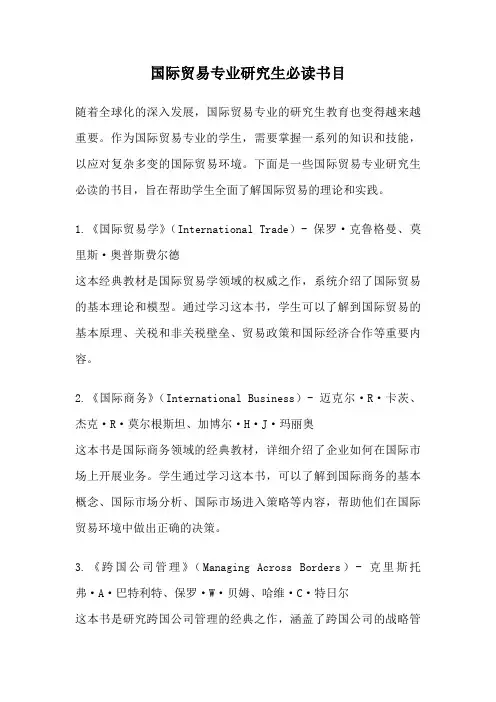
国际贸易专业研究生必读书目随着全球化的深入发展,国际贸易专业的研究生教育也变得越来越重要。
作为国际贸易专业的学生,需要掌握一系列的知识和技能,以应对复杂多变的国际贸易环境。
下面是一些国际贸易专业研究生必读的书目,旨在帮助学生全面了解国际贸易的理论和实践。
1.《国际贸易学》(International Trade)- 保罗·克鲁格曼、莫里斯·奥普斯费尔德这本经典教材是国际贸易学领域的权威之作,系统介绍了国际贸易的基本理论和模型。
通过学习这本书,学生可以了解到国际贸易的基本原理、关税和非关税壁垒、贸易政策和国际经济合作等重要内容。
2.《国际商务》(International Business)- 迈克尔·R·卡茨、杰克·R·莫尔根斯坦、加博尔·H·J·玛丽奥这本书是国际商务领域的经典教材,详细介绍了企业如何在国际市场上开展业务。
学生通过学习这本书,可以了解到国际商务的基本概念、国际市场分析、国际市场进入策略等内容,帮助他们在国际贸易环境中做出正确的决策。
3.《跨国公司管理》(Managing Across Borders)- 克里斯托弗·A·巴特利特、保罗·W·贝姆、哈维·C·特日尔这本书是研究跨国公司管理的经典之作,涵盖了跨国公司的战略管理、组织设计、人力资源管理等方面的内容。
学生通过学习这本书,可以了解到跨国公司管理的重要概念和实践经验,帮助他们更好地适应跨国公司的工作环境。
4.《国际贸易实务》(International Trade Practice)- 罗伯特·费尔德曼、迈克尔·D·纳什这本书主要介绍了国际贸易的实践操作,包括国际贸易的主要流程、国际贸易的相关法律法规、国际支付和结算等方面的内容。
学生通过学习这本书,可以了解到国际贸易的实际操作流程和相关的法律法规,为将来从事国际贸易工作打下坚实的基础。
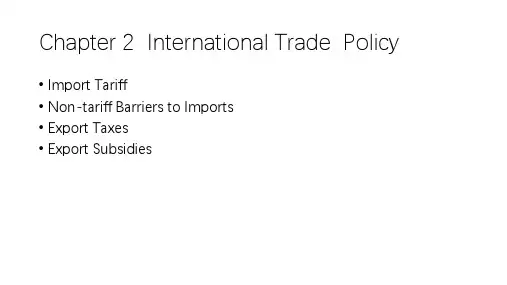
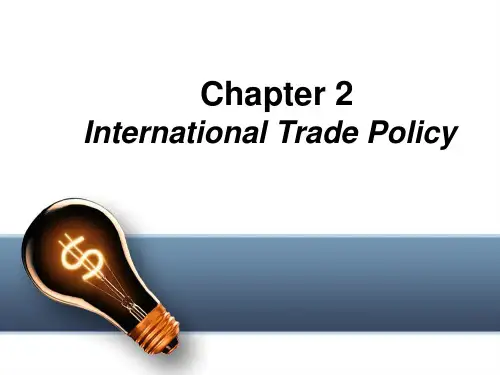
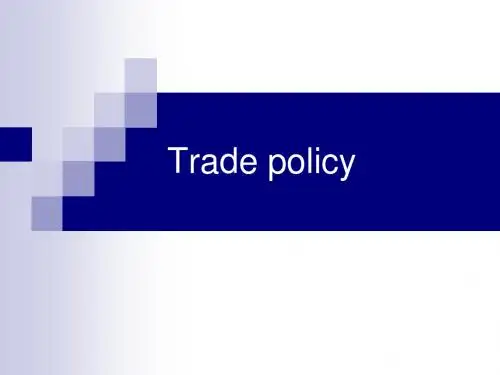
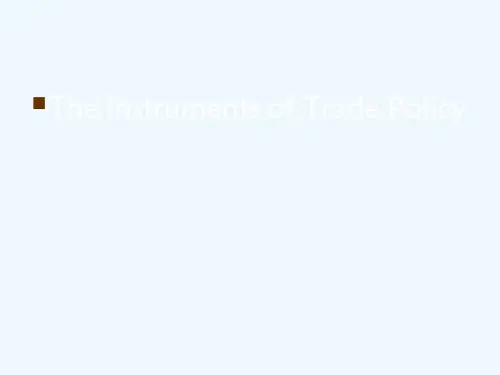
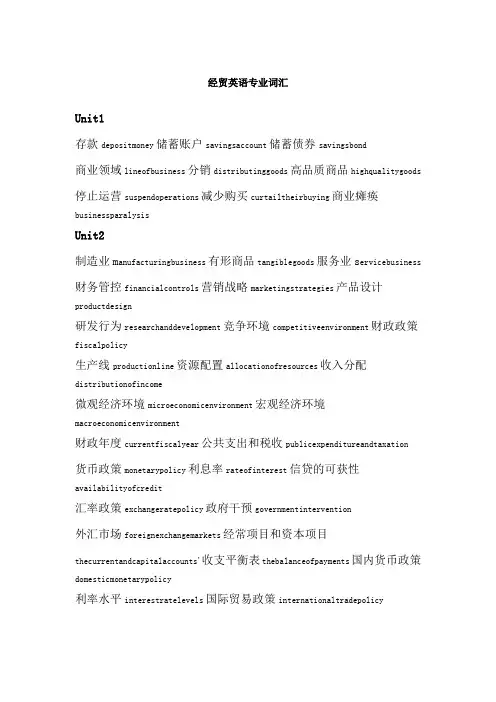
经贸英语专业词汇Unit1存款depositmoney储蓄账户savingsaccount储蓄债券savingsbond商业领域lineofbusiness分销distributinggoods高品质商品highqualitygoods 停止运营suspendoperations减少购买curtailtheirbuying商业瘫痪businessparalysisUnit2制造业m anufacturingbusiness有形商品tangiblegoods服务业s ervicebusiness 财务管控financialcontrols营销战略marketingstrategies产品设计productdesign研发行为researchanddevelopment竞争环境competitiveenvironment财政政策fiscalpolicy生产线productionline资源配置allocationofresources收入分配distributionofincome微观经济环境microeconomicenvironment宏观经济环境macroeconomicenvironment财政年度currentfiscalyear公共支出和税收publicexpenditureandtaxation 货币政策monetarypolicy利息率rateofinterest信贷的可获性availabilityofcredit汇率政策exchangeratepolicy政府干预governmentintervention外汇市场foreignexchangemarkets经常项目和资本项目thecurrentandcapitalaccounts'收支平衡表thebalanceofpayments国内货币政策domesticmonetarypolicy利率水平interestratelevels国际贸易政策internationaltradepolicy出口补贴subsidiesforexports进口关税tariffs(duties)onimports进口配额importquotas保护主义措施protectionistmeasures供给经济政策supply-sidepolicy国有资产的私有化privatizationofstateassets市场经济themarketeconomy工资支付水平wagesettlement紧急措施emergencymeasures培训项目trainingprograms就业政策employmentpolicy刺激总需求stimulationofaggregatedemandUnit3制成品manufacturedgoods占…比例accountfor工业材料industrialmaterials 原材料rawmaterials半成品semi-manufactureditems资本品capitalgoods贸易伙伴tradingpartner贸易差额thebalanceoftradeUnit4限制贸易restricttrade自给自足self-sufficiency资本设备capitalequipment 中间产品intermediateproducts国内市场domesticmarkets外汇foreignexchange 初级外向型primaryoutward-lookingstage消费制成品manufacturedconsumergoods进口替代型的工业化import-substitutingindustrialization寻求海外市场seekmarketsabroad满足国内需求satisfieddomesticdemandUnit5头版frontpage直接的新闻报道straightnewsarticle新闻特写featurenewsarticle后续报道follow-upnewsarticle导语theleadparagraph倒金字塔形invertedpyramidform农产品和工业品交易价格farmandcommodityexchangeprices分类广告classifiedadsUnit7失业处于历史高点unemploymentatrecordhighs泡沫经济bubbleeconomy焦虑指数anxietyindex公司改组corporaterestructuringUnit8品牌名称brandname品牌象征brandsymbol注册商标registeredtrademarks自有品牌privatebrands营销优势marketingadvantage不知名品牌lesser-knownbrand有形和无形标志tangibleandintangibleattributes家族品牌familybranding控制市场dominatedthemarket获得全部的专有权achievecompleteexclusivity国际协议internationalagreements灰色市场“graymarket”goods Unit9达到白热化reachedfeverpitch市场主导marketdomination公平竞争faircompetition贴牌产品Own-LabelProducts企业巨头thecorporateheavyweights 品牌忠诚brandloyalty超市连锁店supermarketchain账面价值thebookvalue品牌延伸brandstretching家喻户晓的名字thehouseholdnames提升品牌知名度increasebrand-awareness潜意识的广告subliminaladvertising盗版thepiratebrands市场饱和marketsaturation建议零售价therecommendedretailprice产品扩散productproliferation反消费者利益保护的运动anti-consumerismmovement产品拥挤productclutterUnit10有竞争性的价格competitivepricing市场研究机构market-researchfirm合资企业viajointventures收购mergersandacquisitions国有企业state-ownedenterprises上市公司listedChinesecompanies售后服务after-salesservice白色家电whitegoods宣传预算promotionbudget专业店aspecialtyshop集体企业acollectiveenterprise分销渠道distributionchannelsUnit11广告业advertisingindustry广告经费advertisingexpenditures潜在客户potentialcustomers销售促进salespromotion机构广告institutionaladvertising行业协会tradeassociation户外广告牌outdoorbillboards单体店one-unitdepartmentstore杂货铺varietystore观众收视率audienceratings大众媒介massmedia经销店branchoutletsUnit12产品系列lineofgoodsUnit13保险公司insuranceagencies营销调研marketingresearch产品策划productplanning商业交易businesstransactions非营利机构nonprofitorganizationsUnit15购买动机buyingmotives冲动行为actonimpulse店面形象storeimage商品类别assortmentofmerchandiseUnit16销售技巧sellingskills求职applyforajob自由的企业制度freeenterprisesystem折扣店adiscountstore创造就业机会createemployment充分就业fullemployment创造额外的购买力createsadditionalpurchasingpower 保持高水准生活maintainingthehighstandardofliving。
Introduction to China’s Trade PolicyChina cannot develop independently without the rest of the world. Likewise, the world needs China if it is to attain prosperity. Following the trend of economic globalization, China is participating in international economic and technological cooperation on an ever larger scale, in wider areas and at higher levels in an effort to push economic globalization towards the direction of common prosperity for all countries. Today, the mainstream of international trade is to share successes, with all as winners. China adheres to its opening-up strategy for mutual benefit. For this, it has made conforming to China's own interests while promoting common development a basic principle guiding its foreign economic and trade work, develops its economic and trade relations with other countries on the basis of equality, mutual benefit and reciprocity, and makes constant contributions to the sustained growth of global trade.China has exerted itself to push forward multilateral economic and trade relations and regional economic cooperation, actively participated in the formulation and execution of international economic and trade rules, and joined various other countries in settling disputes and problems emerging in their cooperation, so as to promote the balanced and orderly development of the world economy.China has been an active supporter of and participant in multilateral trade system. Since its accession to the WTO in December 2001, China has strictly kept its commitments to create more favorable conditions for international economic and technological cooperation. China has sorted out and revised some 3,000 laws, regulations and department rules, continually improved its foreign-related economic legal system, and enhanced the transparency of its trade policies. China has cut its customs tariffs step by step, as promised, and by 2005 its average tariffs had been reduced to 9.9 percent, and most non-tariff measures had been cancelled. Banking, insurance, securities, distribution and other service trade sectors have opened wider to the outside world. Of the 160-odd service trade sectors listed by the WTO, China has opened more than 100, or 62.5 percent, a level close to that of the developed countries. China has actively pushed ahead with a new round of multilateral trade negotiations, participated in talks on various topics, especially on agriculture, market access of non-farm products and the service trades, and played a constructive role in helping developing and developed members reduce disputes through talks. China, together with other WTO members, has done a lot of work to spur substantial progress to reach early agreement among the negotiators.中国的发展离不开世界,同样世界的繁荣需要中国。
black hole tariffs and endogenous policytheoryBlack hole tariffs refer to high tariffs that can potentially trap an economy in a vicious cycle of protectionism and retaliation. Endogenous policy theory, on the other hand, examines how domestic political factors shape trade policies. In this essay, we will explore the relationship between black hole tariffs and endogenous policy theory.Black hole tariffs have been a topic of great interest in international economics. These tariffs are typically set in response to perceived unfair trade practices or to protect domestic industries from foreign competition. Initially, imposing higher tariffs may seem like a straightforward solution to address these concerns. However, it is important to consider the potential consequences of such actions.黑洞关税是指高关税可能会将一个经济体困在保护主义和报复的恶性循环中。
国际贸易政策手册(Handbook on International Trade Policy)简介:"The Handbook on International Trade Policy" is an insightful and comprehensive reference tool focusing on trade policy issues in the era of globalization. Each specially commissioned chapter deals with important international trade issues, discusses the current literature on the subject, and explores major controversies. The Handbook also directs the interested reader to further sources of information. The expert contributors cover both traditional and more current concerns including: history of thought on trade policy; the development of multilateral organizations such as the World Trade Organization; border restrictions and subsidies; regional trade agreements; trade and the environment; animal, plant and food safety measures; and, international protection of intellectual property and sanctions.Presenting a broad and state-of-the-art perspective on the topic, this highly accessible Handbook will prove an invaluable resource to researchers, academics, policymakers and practitioners concerned with international trade policy.国际贸易政策手册(国际贸易政策手册)简介:《国际贸易政策手册》是一本专注于全球化时代贸易政策问题的深刻而全面的参考工具。
政策英语怎么说政策是国家政权机关、政党组织和其他社会政治集团为了实现自己所代表的阶级、阶层的利益与意志,以权威形式标准化地规定在一定的历史时期内,应该达到的奋斗目标、遵循的行动原则、完成的明确任务、实行的工作方式、采取的一般步骤和具体措施。
那么你知道政策用英语怎么说吗?下面来学习一下吧。
政策的英语说法:policy政策的相关短语:经济政策 economic policy ;货币政策 monetary policy社会政策 social policy ;Politique sociale刑事政策 Crime prevention ;世界政策 the world policy会计政策 accounting policy ; accounting policies金融政策 financial policy ;破产政策 bankruptcy policy政策的英语例句:1. It was not the policy of the government to repatriate genuine refugees.遣返真正的难民回国并非政府的政策。
2. The White House quickly announced that the policy is under review.白宫很快宣布该项政策正在审核中。
3. Responsibility and moderation were to be the keynotes of their foreign policy.责任和克制将是他们外交政策的核心。
4. They called for the return of internment without trial for terrorists.他们呼吁对恐怖分子重新实施不经审讯即行拘留政策。
5. Keeping inflation low is the keystone of their economic policy.将通货膨胀率保持在较低水平是他们经济政策的主旨。